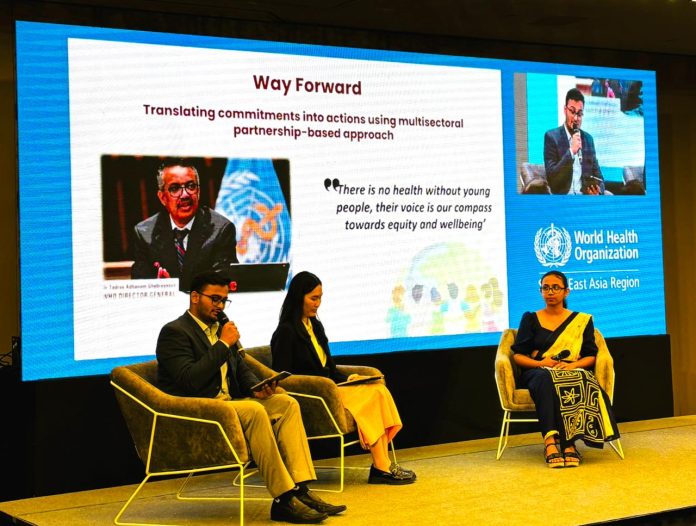Colombo, October 12, 2025: In a historic event at Cinnamon Life Hotel in Colombo, Sri Lanka, the World Health Organization (WHO) officially launched the South-East Asia Regional Youth Council (SEAR YC). Representing Bangladesh in this prestigious council is Sharif Mohammad Sadat, a young medical student and the current Asia-Pacific Regional Director of the International Federation of Medical Students Associations (IFMSA).
The WHO South-East Asia Regional Office (SEARO) initiated this council to integrate the perspectives, experiences, and innovations of youth into the mainstream of health policy formulation. After reviewing 64 applications, nine organizations were selected as members, representing Bangladesh, India, Bhutan, Nepal, Maldives, Sri Lanka, Thailand, Timor-Leste, and IFMSA. Sadat stands out as the only medical student in the council, representing medical students across the South-East Asia region.
Held on the eve of the 78th WHO South-East Asia Regional Committee Meeting, the inaugural ceremony was attended by key figures, including Dr. Chandima Siriwardana, Director of the Family Health Bureau at Sri Lanka’s Ministry of Health, Dr. Asela Gunawardena, Director General of Health Services, and Dr. Katharina Boehme, a senior official from WHO SEARO. The closing remarks were delivered by Dr. Chirantha Vithana, National Program Manager for Adolescent and Youth Health in Sri Lanka.
In his address, Sadat emphasized the significance of the council’s formation:
“Today’s inauguration is not an end but a beginning. Over the next two years, we will pave the way for a future where youth ideas, leadership, and innovation are at the heart of health policy.”
“As a medical student from Bangladesh, I am proud that our generation’s voice is now resonating in regional and global health leadership.”
The establishment of the WHO South-East Asia Regional Youth Council marks a groundbreaking step, creating a platform for youth to contribute to health services, policy, and leadership in the region. The council will work in partnership with WHO SEARO and member states to develop youth-centric policies, research, and action plans.
Sadat’s achievement is not only a personal milestone but also a symbol of the potential of Bangladesh’s young medical students. It underscores that with dedication and passion, a student’s voice can reach the global stage of policy-making.

